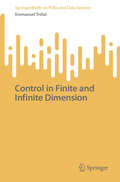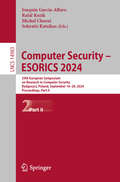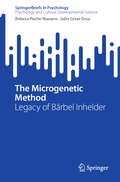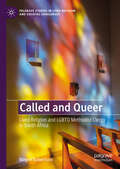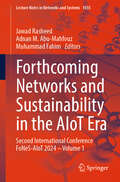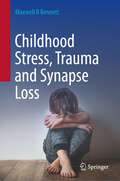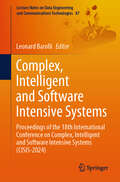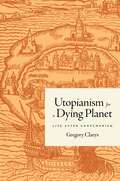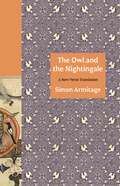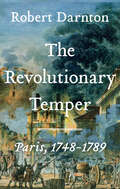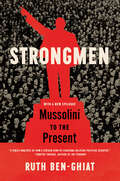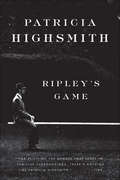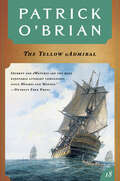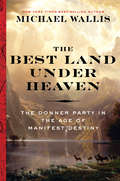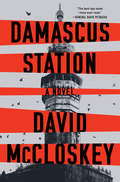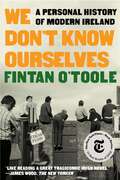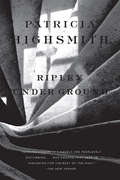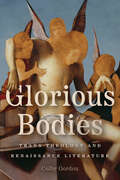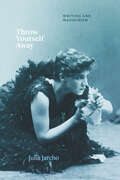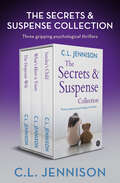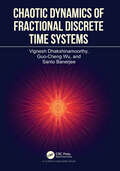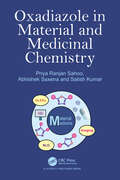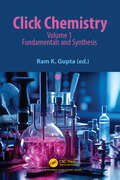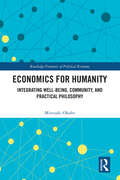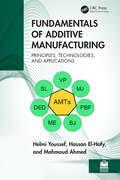- Table View
- List View
Control in Finite and Infinite Dimension (SpringerBriefs on PDEs and Data Science)
by Emmanuel TrélatThis book is the result of various master and summer school courses the author has taught. The objective is to provide the reader with an introduction to control theory and to the main tools allowing to treat general control systems. The author hopes this book will serve as motivation to go deeper into the theory or numerical aspects that are not covered in this book. This book might be helpful for graduate students and researchers in the field of control theory.
Computer Security – ESORICS 2024: 29th European Symposium on Research in Computer Security, Bydgoszcz, Poland, September 16–20, 2024, Proceedings, Part II (Lecture Notes in Computer Science #14983)
by Sokratis Katsikas Joaquin Garcia-Alfaro Michał Choraś Rafał KozikThis four-volume set LNCS 14982-14985 constitutes the refereed proceedings of the 29th European Symposium on Research in Computer Security, ESORICS 2024, held in Bydgoszcz, Poland, during September 16–20, 2024. The 86 full papers presented in these proceedings were carefully reviewed and selected from 535 submissions. They were organized in topical sections as follows: Part I: Security and Machine Learning. Part II: Network, Web, Hardware and Cloud; Privacy and Personal Datat Protection. Part III: Software and Systems Security; Applied Cryptopgraphy. Part IV: Attacks and Defenses; Miscellaneous.
The Microgenetic Method: Legacy of Bärbel Inhelder (SpringerBriefs in Psychology)
by Rebeca Puche-Navarro Julio César OssaOne of the arguments that explain the relevance of this book is the overwhelming lack of knowledge that the current literature throws on the Inhelderian microgenetic method. The place of this method is definitely ungrateful and has remained incomprehensibly hidden. All indications are that it seems to have lagged behind many of the brightest heads in developmental psychology, those who made up the Geneva school. The book aims to illustrate how Inhelderian microgenesis emerges in the landscape of cognitive development as a new object of study. More than ruptures with respect to the problems of the normative subject, the Inhelderian project entails both conceptual and methodological displacements. In this new map, the psychological subject takes a predominant place, and does so in terms of the cognitive functioning of the subject in relation to situations of resolution. This functioning is studied on the basis of the microgenetic method, which makes it possible to identify the role of mental schemas, their combinations and recompositions in the face of specific and problematic situations. The totally original version of the microgenetic method that is delivered from the Inhelderian legacy in this book, not only recovers its basic sense but also advances in the direction of some indications that Inhelder herself had pointed out. This renewed object of study recovers a subject, with a status in terms of its own models, its theories and its dynamics. Starting from a demanding and knowledgeable reading of Inhelder's work. This knowledge becomes the best criterion to point out an updated path of the work with concepts and tools resulting from recent research but articulated with a microgenetic vision coming from the most orthodox tradition. The bet consists of advancing from the legacy of Inhelder and her team and projecting it as a methodological alternative for current research in developmental studies.
Called and Queer: Lived religion and LGBTQ Methodist Clergy in South Africa (Palgrave Studies in Lived Religion and Societal Challenges)
by Megan RobertsonThis book is the first in-depth study of the lived experiences of queer Christian clergy in an African context. Using a queer lived religion framing, it draws on ethnographic research to analyse how six LGBTQ clergy understand and practice their vocation in the Methodist Church of Southern Africa (MCSA). Seemingly marginalised in a denomination which maintains that marriage is only between one man and one woman, this book explores why LGBTQ clergy are motivated to live out their calling in the Church and how they make sense of their positions within it. In doing so, it looks beyond an analysis of a Church based on its official and doctrinal institutional positions on queer people and sexualities and, instead, uncovers the taken-for-granted ways that gender and sex are inscribed in ‘the way we do things around here’. This book is relevant to students and researchers in gender and sexuality studies, African religious studies, and sociology of religion.
Forthcoming Networks and Sustainability in the AIoT Era: Second International Conference FoNeS-AIoT 2024 - Volume 1 (Lecture Notes in Networks and Systems #1035)
by Jawad Rasheed Muhammad Fahim Adnan M. Abu-MahfouzThis book introduces a groundbreaking approach to enhancing IoT device security, providing a comprehensive overview of its applications and methodologies. Covering a wide array of topics, from crime prediction to cyberbullying detection, from facial recognition to analyzing email spam, it addresses diverse challenges in contemporary society. Aimed at researchers, practitioners, and policymakers, this book equips readers with practical tools to tackle real-world issues using advanced machine learning algorithms. Whether you're a data scientist, law enforcement officer, or urban planner, this book is a valuable resource for implementing predictive models and enhancing public safety measures. It is a comprehensive guide for implementing machine learning solutions across various domains, ensuring optimal performance and reliability. Whether you're delving into IoT security or exploring the potential of AI in urban landscapes, this book provides invaluable insights and tools to navigate the evolving landscape of technology and data science. The book provides a comprehensive overview of the challenges and solutions in contemporary cybersecurity. Through case studies and practical examples, readers gain a deeper understanding of the security concerns surrounding IoT devices and learn how to mitigate risks effectively. The book's interdisciplinary approach caters to a diverse audience, including academics, industry professionals, and government officials, who seek to address the growing cybersecurity threats in IoT environments. Key uses of this book include implementing robust security measures for IoT devices, conducting research on machine learning algorithms for attack detection, and developing policies to enhance cybersecurity in IoT ecosystems. By leveraging advanced machine learning techniques, readers can effectively detect and mitigate cyber threats, ensuring the integrity and reliability of IoT systems. Overall, this book is a valuable resource for anyone involved in designing, implementing, or regulating IoT devices and systems.
Childhood Stress, Trauma and Synapse Loss
by Maxwell R BennettThis book is concerned with the extent to which childhood stress and trauma lead in relative maturity to major depression (MDD) and post-traumatic stress disorder (PTSD). The loss of synapses in the cortex, accompanying childhood maltreatment, is identified as a principal mechanism for developing these disorders. Considerable attention is given to identifying interventions that will restore lost synapses, so ameliorating these mental illnesses. The book describes the emergence of abnormal psychology in youth and adult life following childhood maltreatment. Of considerable immediate concern is the extent to which such maltreatment significantly enhances the tendency to suicide and suicidality. Next, consideration is given as to how personality disorders, such as obsessive-compulsive disorder, the very dangerous borderline personality disorder, and the publicly offensive narcissistic personality disorder, arise from childhood maltreatment. The classification or nosology of mental and personality disorders as well as the principal psychoanalytic approaches available for their treatment are sketched together with recent attempts to use novel constructs that bridge between symptoms (based on patients’ behavior and self-descriptions). Recently, new techniques have been developed for brain imaging and non-invasive and localized brain stimulation. These show that nodes of the distributed brain network whose malfunction is closely related to major depressive disorders are likely to differ in their importance from patient to patient. Wonderfully, so-called ‘closed-loop’ stimulation techniques are now available for automatically adjusting the activity of individual nodes in individual patients, relieving them of their major depression. The results of our research, and that of others using magnetic resonance imaging of mature patients that have been maltreated as children, have been to identify the nodes that have lost gray matter. We have shown that this is likely due to the loss of synapses in these nodes. Finally, the central question of how synapses may be restored in these nodes to ameliorate major depressive disorders, post-traumatic stress disorder, and suicidality is considered, emphasizing the recent revolutionary discovery that the psychedelic ketamine restores synapses and has a therapeutic effect on mental health.
Complex, Intelligent and Software Intensive Systems: Proceedings of the 18th International Conference on Complex, Intelligent and Software Intensive Systems (CISIS-2024) (Lecture Notes on Data Engineering and Communications Technologies #87)
by Leonard BarolliSoftware Intensive Systems are systems, which heavily interact with other systems, sensors, actuators, devices, other software systems and users. More and more domains are involved with software intensive systems, e.g. automotive, telecommunication systems, embedded systems in general, industrial automation systems and business applications. Moreover, the outcome of web services delivers a new platform for enabling software intensive systems. Complex Systems research is focused on the overall understanding of systems rather than its components. Complex Systems are very much characterized by the changing environments in which they act by their multiple internal and external interactions. They evolve and adapt through internal and external dynamic interactions. The development of Intelligent Systems and agents, which is each time more characterized by the use of ontologies and their logical foundations build a fruitful impulse for both Software Intensive Systems and Complex Systems. Recent research in the field of intelligent systems, robotics, neuroscience, artificial intelligence, and cognitive sciences are very important factor for the future development and innovation of software intensive and complex systems. The aim of the volume “Complex, Intelligent and Software Intensive Systems” is to deliver a platform of scientific interaction between the three interwoven challenging areas of research and development of future ICT-enabled applications: Software Intensive Systems, Complex systems and Intelligent Systems.
Utopianism for a Dying Planet: Life after Consumerism
by Gregory ClaeysHow the utopian tradition offers answers to today’s environmental crisesIn the face of Earth’s environmental breakdown, it is clear that technological innovation alone won’t save our planet. A more radical approach is required, one that involves profound changes in individual and collective behavior. Utopianism for a Dying Planet examines the ways the expansive history of utopian thought, from its origins in ancient Sparta and ideas of the Golden Age through to today's thinkers, can offer moral and imaginative guidance in the face of catastrophe. The utopian tradition, which has been critical of conspicuous consumption and luxurious indulgence, might light a path to a society that emphasizes equality, sociability, and sustainability.Gregory Claeys unfolds his argument through a wide-ranging consideration of utopian literature, social theory, and intentional communities. He defends a realist definition of utopia, focusing on ideas of sociability and belonging as central to utopian narratives. He surveys the development of these themes during the eighteenth and nineteenth centuries before examining twentieth- and twenty-first-century debates about alternatives to consumerism. Claeys contends that the current global warming limit of 1.5C (2.7F) will result in cataclysm if there is no further reduction in the cap. In response, he offers a radical Green New Deal program, which combines ideas from the theory of sociability with proposals to withdraw from fossil fuels and cease reliance on unsustainable commodities.An urgent and comprehensive search for antidotes to our planet’s destruction, Utopianism for a Dying Planet asks for a revival of utopian ideas, not as an escape from reality, but as a powerful means of changing it.
The Owl and the Nightingale: A New Verse Translation (The Lockert Library of Poetry in Translation #134)
by Simon ArmitageFrom the UK Poet Laureate and bestselling translator of Sir Gawain and the Green Knight, a complete verse translation of a spirited and humorous medieval English poemThe Owl and the Nightingale, one of the earliest literary works in Middle English, is a lively, anonymous comic poem about two birds who embark on a war of words in a wood, with a nearby poet reporting their argument in rhyming couplets, line by line and blow by blow. In this engaging and energetic verse translation, Simon Armitage captures the verve and humor of this dramatic tale with all the cut and thrust of the original.In an agile iambic tetrameter that skillfully amplifies the prosody and rhythm of the original, Armitage’s translation moves entertainingly from the eloquent and philosophical to the ribald and ridiculous. Sounding at times like antagonists in a Twitter feud, the owl and the nightingale quarrel about a host of subjects that still resonate today—including love, marriage, identity, cultural background, class distinctions, and the right to be heard. Adding to the playful, raucous mood of the barb-trading birds is Armitage, who at one point inserts himself into the poem as a “magistrate . . . to adjudicate”—one who is “skilled with words & worldly wise / & frowns on every form of vice.”Featuring the Middle English text on facing pages and an introduction by Armitage, this volume will delight readers of all ages.
The Revolutionary Temper: Paris, 1748-1789
by Robert DarntonA New York Times Book Review Editors' Choice A groundbreaking account of the coming of the French Revolution from a historian of worldwide acclaim. When a Parisian crowd stormed the Bastille in July 1789, it triggered an event of global consequence: the overthrow of the monarchy and the birth of a new society. Most historians account for the French Revolution by viewing it in retrospect as the outcome of underlying conditions such as a faltering economy, social tensions, or the influence of Enlightenment thought. But what did Parisians themselves think they were doing—how did they understand their world? What were the motivations and aspirations that guided their actions? In this dazzling history, Robert Darnton addresses these questions by drawing on decades of close study to conjure a past as vivid as today’s news. He explores eighteenth-century Paris as an information society much like our own, its news circuits centered in cafés, on park benches, and under the Palais-Royal’s Tree of Cracow. Through pamphlets, gossip, underground newsletters, and public performances, the events of some forty years—from disastrous treaties, official corruption, and royal debauchery to thrilling hot-air balloon ascents and new understandings of the nation—all entered the churning collective consciousness of ordinary Parisians. As public trust in royal authority eroded and new horizons opened for them, Parisians prepared themselves for revolution. Darnton’s authority and sure judgment enable readers to confidently navigate the passions and complexities of controversies over court politics, Church doctrine, and the economy. And his compact, luminous prose creates an immersive reading experience. Here is a riveting narrative that succeeds in making the past a living presence.
Strongmen: Mussolini To The Present
by Ruth Ben-GhiatWhat modern authoritarian leaders have in common (and how they can be stopped). Ruth Ben-Ghiat is the expert on the "strongman" playbook employed by authoritarian demagogues from Mussolini to Putin—enabling her to predict with uncanny accuracy the recent experience in America and Europe. In Strongmen, she lays bare the blueprint these leaders have followed over the past 100 years, and empowers us to recognize, resist, and prevent their disastrous rule in the future. For ours is the age of authoritarian rulers: self-proclaimed saviors of the nation who evade accountability while robbing their people of truth, treasure, and the protections of democracy. They promise law and order, then legitimize lawbreaking by financial, sexual, and other predators. They use masculinity as a symbol of strength and a political weapon. Taking what you want, and getting away with it, becomes proof of male authority. They use propaganda, corruption, and violence to stay in power. Vladimir Putin and Mobutu Sese Seko’s kleptocracies, Augusto Pinochet’s torture sites, Benito Mussolini and Muammar Gaddafi’s systems of sexual exploitation, and Silvio Berlusconi and Donald Trump’s relentless misinformation: all show how authoritarian rule, far from ensuring stability, is marked by destructive chaos. No other type of leader is so transparent about prioritizing self-interest over the public good. As one country after another has discovered, the strongman is at his worst when true guidance is most needed by his country. Recounting the acts of solidarity and dignity that have undone strongmen over the past 100 years, Ben-Ghiat makes vividly clear that only by seeing the strongman for what he is—and by valuing one another as he is unable to do—can we stop him, now and in the future.
Ripley's Game
by Patricia HighsmithWith its sinister humor and genius plotting, Ripley's Game is an enduring portrait of a compulsive, sociopathic American antihero. Living on his posh French estate with his elegant heiress wife, Tom Ripley, on the cusp of middle age, is no longer the striving comer of The Talented Mr. Ripley. Having accrued considerable wealth through a long career of crime—forgery, extortion, serial murder—Ripley still finds his appetite unquenched and longs to get back in the game. In Ripley's Game, first published in 1974, Patricia Highsmith's classic chameleon relishes the opportunity to simultaneously repay an insult and help a friend commit a crime—and escape the doldrums of his idyllic retirement. This third novel in Highsmith's series is one of her most psychologically nuanced—particularly memorable for its dark, absurd humor—and was hailed by critics for its ability to manipulate the tropes of the genre. With the creation of Ripley, one of literature's most seductive sociopaths, Highsmith anticipated the likes of Norman Bates and Hannibal Lecter years before their appearance.
The Yellow Admiral (Aubrey/Maturin Novels #18)
by Patrick O'Brian"There are those already planning this afternoon's trip to the bookstore. Their only reaction is: Thank god, Patrick O'Brian is still writing. To you, I say, not a moment to lose."—John Balzar, Los Angeles Times Life ashore may once again be the undoing of Jack Aubrey in The Yellow Admiral, Patrick O'Brian's best-selling novel and eighteenth volume in the Aubrey/Maturin series. Aubrey, now a considerable though impoverished landowner, has dimmed his prospects at the Admiralty by his erratic voting as a Member of Parliament; he is feuding with his neighbor, a man with strong Navy connections who wants to enclose the common land between their estates; he is on even worse terms with his wife, Sophie, whose mother has ferreted out a most damaging trove of old personal letters. Even Jack's exploits at sea turn sour: in the storm waters off Brest he captures a French privateer laden with gold and ivory, but this at the expense of missing a signal and deserting his post. Worst of all, in the spring of 1814, peace breaks out, and this feeds into Jack's private fears for his career. Fortunately, Jack is not left to his own devices. Stephen Maturin returns from a mission in France with the news that the Chileans, to secure their independence, require a navy, and the service of English officers. Jack is savoring this apparent reprieve for his career, as well as Sophie's forgiveness, when he receives an urgent dispatch ordering him to Gibraltar: Napoleon has escaped from Elba.
The Best Land Under Heaven: The Donner Party In The Age Of Manifest Destiny
by Michael WallisLonglisted for the Andrew Carnegie Medal for Excellence Finalist for the Oklahoma Book Award A Publishers Weekly Holiday Guide History Pick “A book so gripping it can scarcely be put down.... Superb.” —New York Times Book Review "WESTWARD HO! FOR OREGON AND CALIFORNIA!" In the eerily warm spring of 1846, George Donner placed this advertisement in a local newspaper as he and a restless caravan prepared for what they hoped would be the most rewarding journey of a lifetime. But in eagerly pursuing what would a century later become known as the "American dream," this optimistic-yet-motley crew of emigrants was met with a chilling nightmare; in the following months, their jingoistic excitement would be replaced by desperate cries for help that would fall silent in the deadly snow-covered mountains of the Sierra Nevada. We know these early pioneers as the Donner Party, a name that has elicited horror since the late 1840s. With The Best Land Under Heaven, Wallis has penned what critics agree is “destined to become the standard account” (Washington Post) of the notorious saga. Cutting through 160 years of myth-making, the “expert storyteller” (True West) compellingly recounts how the unlikely band of early pioneers met their fate. Interweaving information from hundreds of newly uncovered documents, Wallis illuminates how a combination of greed and recklessness led to one of America’s most calamitous and sensationalized catastrophes. The result is a “fascinating, horrifying, and inspiring” (Oklahoman) examination of the darkest side of Manifest Destiny.
Damascus Station: A Novel
by David McCloskeyFinalist for the 2022 ITW Thriller Award for Best First Novel "Damascus Station is simply marvelous storytelling.…[A] stand-out thriller and essential reading for fans of the genre." —Financial Times A CIA officer and his recruit arrive in war-ravaged Damascus to hunt for a killer in this page-turner that offers the "most authentic depiction of modern-day tradecraft in print." (Navy SEAL sniper and New York Times bestselling author Jack Carr). CIA case officer Sam Joseph is dispatched to Paris to recruit Syrian Palace official Mariam Haddad. The two fall into a forbidden relationship, which supercharges Haddad’s recruitment and creates unspeakable danger when they enter Damascus to find the man responsible for the disappearance of an American spy. But the cat and mouse chase for the killer soon leads to a trail of high-profile assassinations and the discovery of a dark secret at the heart of the Syrian regime, bringing the pair under the all-seeing eyes of Assad’s spy catcher, Ali Hassan, and his brother Rustum, the head of the feared Republican Guard. Set against the backdrop of a Syria pulsing with fear and rebellion, Damascus Station is a gripping thriller that offers a textured portrayal of espionage, love, loyalty, and betrayal in one of the most difficult CIA assignments on the planet.
We Don't Know Ourselves: A Personal History of Modern Ireland
by Fintan O'TooleNEW YORK TIMES BESTSELLER NEW YORK TIMES • 10 BEST BOOKS OF THE YEAR NATIONAL BESTSELLER The Atlantic: 10 Best Books of 2022 Best Books of the Year: Washington Post, New Yorker, Salon, Foreign Affairs, New Statesman, Chicago Public Library, Vroman's “[L]ike reading a great tragicomic Irish novel.” —James Wood, The New Yorker “Masterful . . . astonishing.” —Cullen Murphy, The Atlantic "A landmark history . . . Leavened by the brilliance of O'Toole's insights and wit.” —Claire Messud, Harper’s Winner • 2021 An Post Irish Book Award — Nonfiction Book of the Year • from the judges: “The most remarkable Irish nonfiction book I’ve read in the last 10 years”; “[A] book for the ages.” A celebrated Irish writer’s magisterial, brilliantly insightful chronicle of the wrenching transformations that dragged his homeland into the modern world. Fintan O’Toole was born in the year the revolution began. It was 1958, and the Irish government—in despair, because all the young people were leaving—opened the country to foreign investment and popular culture. So began a decades-long, ongoing experiment with Irish national identity. In We Don’t Know Ourselves, O’Toole, one of the Anglophone world’s most consummate stylists, weaves his own experiences into Irish social, cultural, and economic change, showing how Ireland, in just one lifetime, has gone from a reactionary “backwater” to an almost totally open society—perhaps the most astonishing national transformation in modern history. Born to a working-class family in the Dublin suburbs, O’Toole served as an altar boy and attended a Christian Brothers school, much as his forebears did. He was enthralled by American Westerns suddenly appearing on Irish television, which were not that far from his own experience, given that Ireland’s main export was beef and it was still not unknown for herds of cattle to clatter down Dublin’s streets. Yet the Westerns were a sign of what was to come. O’Toole narrates the once unthinkable collapse of the all-powerful Catholic Church, brought down by scandal and by the activism of ordinary Irish, women in particular. He relates the horrific violence of the Troubles in Northern Ireland, which led most Irish to reject violent nationalism. In O’Toole’s telling, America became a lodestar, from John F. Kennedy’s 1963 visit, when the soon-to-be martyred American president was welcomed as a native son, to the emergence of the Irish technology sector in the late 1990s, driven by American corporations, which set Ireland on the path toward particular disaster during the 2008 financial crisis. A remarkably compassionate yet exacting observer, O’Toole in coruscating prose captures the peculiar Irish habit of “deliberate unknowing,” which allowed myths of national greatness to persist even as the foundations were crumbling. Forty years in the making, We Don’t Know Ourselves is a landmark work, a memoir and a national history that ultimately reveals how the two modes are entwined for all of us.
Ripley Under Ground: A Virago Modern Classic (Mr. Ripley Ser. #25)
by Patricia Highsmith"Ripley is an unmistakable descendant of Gatsby, that 'penniless young man without a past' who will stop at nothing."—Frank Rich Now part of American film and literary lore, Tom Ripley, "a bisexual psychopath and art forger who murders without remorse when his comforts are threatened" (New York Times Book Review), was Patricia Highsmith's favorite creation. In these volumes, we find Ripley ensconced on a French estate with a wealthy wife, a world-class art collection, and a past to hide. In Ripley Under Ground (1970), an art forgery goes awry and Ripley is threatened with exposure; in The Boy Who Followed Ripley (1980), Highsmith explores Ripley's bizarrely paternal relationship with a troubled young runaway, whose abduction draws them into Berlin's seamy underworld; and in Ripley Under Water (1991), Ripley is confronted by a snooping American couple obsessed with the disappearance of an art collector who visited Ripley years before. More than any other American literary character, Ripley provides "a lens to peer into the sinister machinations of human behavior" (John Freeman, Pittsburgh Gazette).
Glorious Bodies: Trans Theology and Renaissance Literature
by Colby GordonA prehistory of transness that recovers early modern theological resources for trans lifeworlds. In this striking contribution to trans history, Colby Gordon challenges the prevailing assumption that trans life is a byproduct of recent medical innovation by locating a cultural imaginary of transition in the religious writing of the English Renaissance. Marking a major intervention in early modern gender studies, Glorious Bodies insists that transition happened, both socially and surgically, hundreds of years before the nineteenth-century advent of sexology. Pairing literary texts by Shakespeare, Webster, Donne, and Milton with a broad range of primary sources, Gordon examines the religious tropes available to early modern subjects for imagining how gender could change. From George Herbert’s invaginated Jesus and Milton’s gestational Adam to the ungendered “glorious body” of the resurrection, early modern theology offers a rich conceptual reservoir of trans imagery. In uncovering early modern trans theology, Glorious Bodies mounts a critique of the broad consensus that secularism is a necessary precondition for trans life, while also combating contemporary transphobia and the right-wing Christian culture war seeking to criminalize transition. Developing a rehabilitative account of theology’s value for positing trans lifeworlds, this book leverages premodern religion to imagine a postsecular transness in the present.
Throw Yourself Away: Writing and Masochism (Thinking Literature)
by Julia JarchoProposes that we can best understand literature’s relationship to sex through a renewed focus on masochism. In a series of readings that engage American and European works of fiction, drama, and theory from the late nineteenth through the early twenty-first centuries, critic and playwright Julia Jarcho argues that these works conceive writing itself as masochistic, and masochism as sexuality enacted in writing. Throw Yourself Away is distinctive in its sustained focus on masochism as an engine of literary production across multiple authors and genres. In particular, Jarcho shows that theater has played a central role in modern erotic fantasies of the literary. Jarcho foregrounds writing as a project of distressed subjects: When masochistic writing is examined as a strategy of response to injurious social systems, it yields a surprisingly feminized—and less uniformly white—image of both masochism and authorship. Ultimately, Jarcho argues that a retheorized concept of masochism helps us understand literature itself as a sex act and shows us how writing can tend to our burdened, desirous bodies. With startling insights into such writers as Henry James, Henrik Ibsen, Mary Gaitskill, and Adrienne Kennedy, Throw Yourself Away furnishes a new masochistic theory of literature itself.
The Secrets & Suspense Collection: The Desperate Wife, What's Mine is Yours, and Sunday's Child
by C. L. JennisonThree gripping psychological thrillers in one volume about the dark things that go on behind closed doors . . . This compelling collection of full-length novels by rising star C. L. Jennison includes:The Desperate Wife Trapped in her marriage to Rex, a violent and controlling man, Ava has one bright spot in her life: her online tutoring sessions with Ali. Their lessons soon lead to an affair that promises a respite from her vicious marriage. But escape attempts can be dangerous . . .What&’s Mine Is Yours Polly has just begun working as a nanny for the Lawrensons at their new home in the Yorkshire countryside. But then the insecure Mrs. Lawrenson starts oversharing—and soon, Polly is caught in the crossfire when a seemingly happy marriage explodes . . .Sunday&’s Child Thirteen-year-old Kaleb has gone missing—and Laney Atkinson and her sister are keeping a secret: their kids were the last to see Kaleb alive . . .
Chaotic Dynamics of Fractional Discrete Time Systems
by Santo Banerjee Vignesh Dhakshinamoorthy Guo-Cheng WuThe book reviews the application of discrete fractional operators in diverse fields such as biological and chemical reactions, as well as chaotic systems, demonstrating their applications in physics. The dynamical analysis is carried out using equilibrium points of the system for studying their stability properties and the chaotic behaviors are illustrated with the help of bifurcation diagrams and Lyapunov exponents.The book is divided into three parts. Part I deals with the application of discrete fractional operators in chemical reaction-based systems with biological significance. Two different chemical reaction models are analysed- one being disproportionation of glucose, which plays an important role in human physiology and the other is the Lengyel – Epstein chemical model. Chaotic behavior of the systems is studied and the synchronization of the system is performed. Part II covers the analysis of biological systems like tumor immune system and neuronal models by introducing memristor based flux control. The memductance functions are considered as quadratic, periodic, and exponential functions. The final part of the book reviews the complex form of the Rabinovich-Fabrikant system which describes physical systems with strong nonlinearity exhibiting unusual behavior.
Oxadiazole in Material and Medicinal Chemistry
by Satish Kumar Priya Ranjan Sahoo Abhishek SaxenaThe book “Oxadiazole in Material and Medicinal Chemistry” is based on the utility of organic motifs that contain oxadiazole units in their molecular architecture. Most of the common and alternate ways to synthesize oxadiazole-based probes have been discussed. The book also features some of the advanced applications of such organic motifs in liquid crystals, OLEDs, imaging agents, and medicines. Few practical applications of oxadiazole-based molecules in material and electronic areas have also been outlined. The book focuses on understanding the role of oxadiazole scaffolds in biological events, disease monitoring, and detection. The therapeutic effect of oxadiazole-based probes on cancer, inflammation, and neurodegeneration have also been covered in the book. Oxadiazole probes in inhibitor design and the corresponding inhibitory potency as drug development have been outlined. The authors hope that the book will garner positive interest among students and researchers associated with material and medicinal chemistry.
Click Chemistry: Volume 1: Fundamentals and Synthesis
by Ram K. GuptaClick chemistry involves highly efficient, reliable, and stereoselective reactions that can synthesize new materials cost-effectively. The first volume entitled “Click Chemistry: Fundamentals and Synthesis” covers the fundamentals, mechanisms, kinetics, and various approaches to synthesizing new materials making it suitable for synthetic chemists and researchers working in nanoscience and technology. The main objective of this book is to provide information about current, state-of-the-art development in click chemistry as well as challenges. Experts from around the world have contributed towards this book, making this a suitable textbook for students and providing new guidelines to researchers and industries working in these areas.
Economics for Humanity: Integrating Well-being, Community, and Practical Philosophy (Routledge Frontiers of Political Economy)
by Mitsuaki OkabeEconomics is often referred to as “the queen of social sciences.” This is because mainstream economics has been established as an elegant academic discipline by assuming mankind simply to be homo economicus— an image of human beings showing interest in only material fulfilment and acting solely in his interest. This book challenges this basic perception of human beings.By replacing it with a more realistic and multifaceted human motive as supported by research in various academic disciplines, the book tries to provide a novel and more plausible picture of human society. Specifically, the book takes in such human aspects as pursuing well-being, forming human networks, and the realisation of potential of ability. Thus, if we try to better understand human motives and the society, it becomes necessary to replace the conventional two-sector (market–government) social model with a more general and theoretically superior social model, the “three-sector model” consisting of market–government–non-profit sectors. This book demonstrates the validity of this new view by utilising basic principles of economic policy and social welfare analyses. Moreover, the book has introduced a newly developing practical philosophy in Japan over the last 50 years to achieve both individual well-being and better human society.
Fundamentals of Additive Manufacturing: Principles, Technologies, and Applications
by Hassan El-Hofy Helmi Youssef Mahmoud AhmedAdditive manufacturing (AM) is a manufacturing process that has emerged as a viable technology for the production of engineering components. The aspects associated with additive manufacturing, such as less material wastage, ease of manufacturing, less human involvement, fewer tool and fixture requirements, and less post-processing, make the process sustainable for industrial use. Further, this new technology has led to highly optimized product characteristics and functional aspects. This textbook introduces the basics of this new additive manufacturing technology to individuals who will be involved in the grand spectrum of manufacturing finished products.Fundamentals of Additive Manufacturing Technology: Principles, Technologies, and Applications provides knowledge and insight into various aspects of AM and deals with the basics, categories, materials, tooling, and equipment used. It presents a classified and complete description of the most common and recently developed additive manufacturing methods with applications, solved examples, and review questions. This textbook also emphasizes the fundamentals of the process, its capabilities, typical applications, advantages, and limitations, and also discusses the challenges, needs, and general recommendations for additive manufacturing.This fundamental textbook is written specifically for undergraduates in manufacturing, mechanical, industrial, and materials engineering disciplines for courses in manufacturing technology taught in engineering colleges and institutions all over the world. It also covers the needs of production and manufacturing engineers and technologists participating in related industries. Additionally, the textbook can be used by students in other disciplines concerned with design and manufacturing, such as automotive, biomedical, and aerospace engineering.
